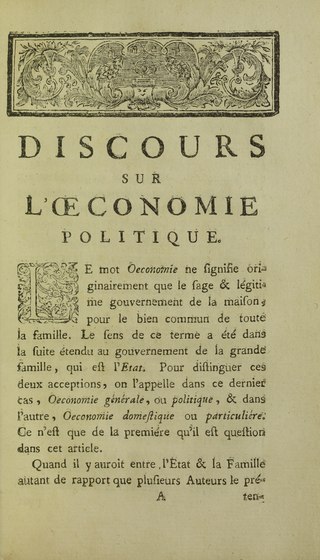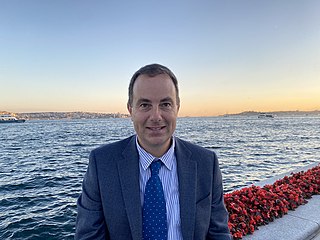Anthony Ian Ogus CBE FBA is an emeritus professor of law at the University of Manchester and the Erasmus University Rotterdam and a pre-eminent scholar in the field of regulation and economic analysis of law. He also writes and lectures on opera, and records English literature for LibriVox.

Comparative law is the study of differences and similarities between the law of different countries. More specifically, it involves the study of the different legal "systems" in existence in the world, including the common law, the civil law, socialist law, Canon law, Jewish Law, Islamic law, Hindu law, and Chinese law. It includes the description and analysis of foreign legal systems, even where no explicit comparison is undertaken. The importance of comparative law has increased enormously in the present age of internationalism, economic globalization, and democratization.

Ronald Harry Coase was a British economist and author. Coase received a bachelor of commerce degree (1932) and a PhD from the London School of Economics, where he was a member of the faculty until 1951. He was the Clifton R. Musser Professor of Economics at the University of Chicago Law School, where he arrived in 1964 and remained for the rest of his life. He received the Nobel Memorial Prize in Economic Sciences in 1991.

Political economy is the study of how economic systems and political systems are linked. Widely studied phenomena within the discipline are systems such as labour markets and financial markets, as well as phenomena such as growth, distribution, inequality, and trade, and how these are shaped by institutions, laws, and government policy. Originating in the 16th century, it is the precursor to the modern discipline of economics. Political economy in its modern form is considered an interdisciplinary field, drawing on theory from both political science and modern economics.

More Guns, Less Crime is a book by John R. Lott Jr. that says violent crime rates go down when states pass "shall issue" concealed carry laws. He presents the results of his statistical analysis of crime data for every county in the United States during 29 years from 1977 to 2005. Each edition of the book was refereed by the University of Chicago Press. The book examines city, county and state level data from the entire United States and measures the impact of 13 different types of gun control laws on crime rates. The book expands on an earlier study published in 1997 by Lott and his co-author David Mustard in The Journal of Legal Studies and by Lott and his co-author John Whitley in The Journal of Law and Economics, October 2001.

Richard Allen Epstein is an American legal scholar known for his writings on torts, contracts, property rights, law and economics, classical liberalism, and libertarianism. He is the Laurence A. Tisch Professor of Law at New York University and the director of the university's Classical Liberal Institute. He also serves as the Peter and Kirsten Bedford Senior Fellow at the Hoover Institution and the James Parker Hall Distinguished Service Professor of Law emeritus and a senior lecturer at the University of Chicago.

Law and economics, or economic analysis of law, is the application of microeconomic theory to the analysis of law, which emerged primarily from scholars of the Chicago school of economics. Economic concepts are used to explain the effects of laws, to assess which legal rules are economically efficient, and to predict which legal rules will be promulgated. There are two major branches of law and economics; one based on the application of the methods and theories of neoclassical economics to the positive and normative analysis of the law, and a second branch which focuses on an institutional analysis of law and legal institutions, with a broader focus on economic, political, and social outcomes, and overlapping with analyses of the institutions of politics and governance.
The Chicago school of economics is a neoclassical school of economic thought associated with the work of the faculty at the University of Chicago, some of whom have constructed and popularized its principles. Milton Friedman and George Stigler are considered the leading scholars of the Chicago school.

Jagdish Natwarlal Bhagwati is an Indian-born naturalized American economist and one of the most influential trade theorists of his generation. He is a University Professor of economics and law at Columbia University and a Senior Fellow in International Economics at the Council on Foreign Relations. He has made significant contributions to international trade theory and economic development.
The legal origins theory claims that the two main legal traditions or origins, civil law and common law, crucially shape lawmaking and dispute adjudication and have not been reformed after the initial exogenous transplantation by Europeans. Therefore, they affect economic outcomes to date. According to the evidence reported by the initial proponents of such a theory, countries that received civil law would display today less secure investor rights, stricter regulation, and more inefficient governments and courts than those that inherited common law. These differences would reflect both a stronger historical emphasis of common law on private ordering and the higher adaptability of judge-made law.
New Institutional Economics (NIE) is an economic perspective that attempts to extend economics by focusing on the institutions that underlie economic activity and with analysis beyond earlier institutional economics and neoclassical economics. Unlike neoclassical economics, it also considers the role of culture and classical political economy in economic development.

The sociology of law is often described as a sub-discipline of sociology or an interdisciplinary approach within legal studies. Some see sociology of law as belonging "necessarily" to the field of sociology, but others tend to consider it a field of research caught up between the disciplines of law and sociology. Still others regard it as neither a subdiscipline of sociology nor a branch of legal studies but as a field of research on its own right within the broader social science tradition. Accordingly, it may be described without reference to mainstream sociology as "the systematic, theoretically grounded, empirical study of law as a set of social practices or as an aspect or field of social experience". It has been seen as treating law and justice as fundamental institutions of the basic structure of society mediating "between political and economic interests, between culture and the normative order of society, establishing and maintaining interdependence, and constituting themselves as sources of consensus, coercion and social control".
Roland Kirstein is a German economist and professor of Business Administration at the Otto-von-Guericke-University in Magdeburg, Germany.
Frederic Michael Scherer is an American economist and expert on industrial organization. Since 2006, he continues as a professor of economics at the JFK School of Government at Harvard University.
Ian Roderick Macneil of Barra, The Macneil of Barra, Chief of Clan MacNeil, also known as Clan Niall and 26th of Barra, also Baron of Barra) was a Scottish American legal scholar.
William Breit (1933–2011) was an American economist, mystery novelist, and professional comedian. Breit was born in New Orleans. He received his undergraduate and master's degrees from the University of Texas and his Ph.D from Michigan State University in 1961. He was an Assistant and Associate Professor of Economics at Louisiana State University (1961–1965) On the recommendation of Milton Friedman he was interviewed and hired at the University of Virginia where he was Associate Professor and Professor of Economics (19651983). He returned to his San Antonio as the E.M. Stevens Distinguished Professor of Economics at Trinity University in 1983 and retired as the Vernon F. Taylor Distinguished Professor Emeritus in 2002. He is considered an expert in the history of economic thought and anti-trust economics. He established the Nobel Laureate Lecture Series at Trinity University and is most notable as a mystery novelist where their murder mysteries are solved by applying basic economic principles.
International legal theory comprises a variety of theoretical and methodological approaches used to explain and analyse the content, formation and effectiveness of public international law and institutions and to suggest improvements. Some approaches center on the question of compliance: why states follow international norms in the absence of a coercive power that ensures compliance. Other approaches focus on the problem of the formation of international rules: why states voluntarily adopt international legal norms, that limit their freedom of action, in the absence of a world legislature. Other perspectives are policy oriented; they elaborate theoretical frameworks and instruments to criticize the existing rules and make suggestions on how to improve them. Some of these approaches are based on domestic legal theory, others are interdisciplinary, while others have been developed expressly to analyse international law.
Emmanuel Farhi was a French economist and professor of economics at Harvard University. His research focused on macroeconomics, taxation and finance. He was a member of the French Economic Analysis Council to the French Prime Minister from 2010 to 2012.
Jurimetrics is the application of quantitative methods, and often especially probability and statistics, to law. In the United States, the journal Jurimetrics is published by the American Bar Association and Arizona State University. The Journal of Empirical Legal Studies is another publication that emphasizes the statistical analysis of law.

David de la Croix is a Belgian scholar and author in the field of economic growth and demographic economics. He is professor at the University of Louvain (UCLouvain).

Douglas J. Cumming is a Canadian financial economist. He is the DeSantis Distinguished Professor of Finance and the Chair of the Finance Department at the College of Business, Florida Atlantic University and a Visiting Professor at the Birmingham Business School, University of Birmingham. Cumming specializes in financial market misconduct, financial technology (FinTech), entrepreneurial finance, mutual funds, hedge funds, entrepreneurship, international business, and law. In 2022, Cumming was listed as one of the top-92 cited scholars in the world in the area of business and economics.